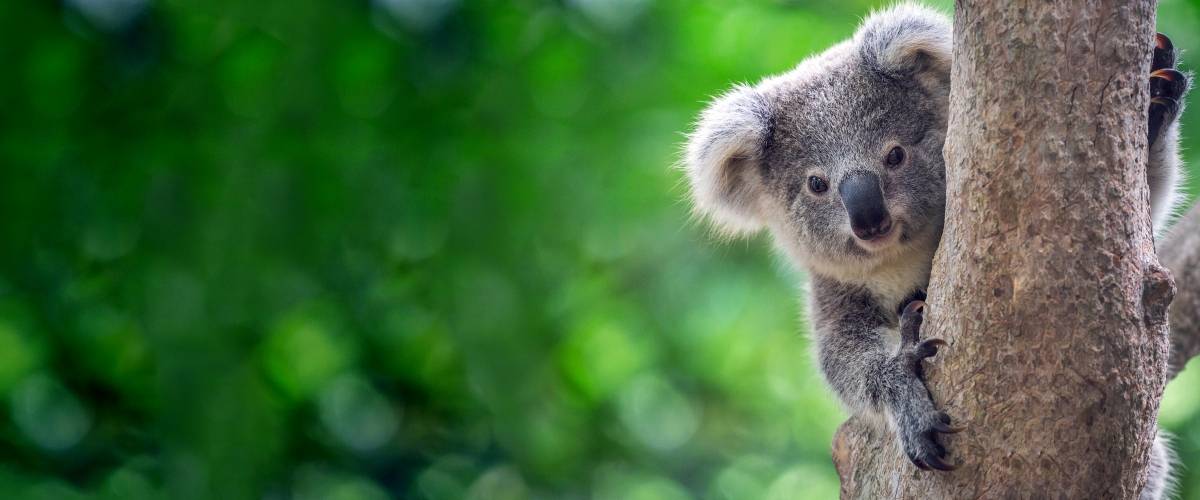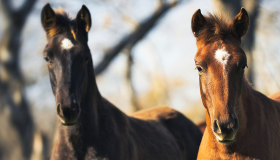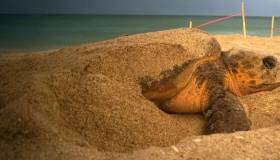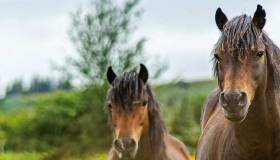
DENVER/October 9, 2020 – Morris Animal Foundation, a global leader in advancing animal health, has awarded $553,000 to fund five studies designed to improve the care, rehabilitation and release of wildlife impacted by wildfires. The request for proposals for research projects went out in response to the devastating events in Australia during the 2019-2020 bushfire season.
The studies, supported by the Foundation’s new Australian Wildlife Fund (AWF), will help veterinary and animal health scientists prepare for future wildfires by developing guidelines for rescue and rehabilitation, identifying risk factors for injury recovery and likelihood of release, tracking outcomes and improving antibiotic treatments. The studies may also provide knowledge to inform responses to other wildfire crises around the globe, including those ravaging the land and wildlife of the American Northwest.
“There is a significant lack of evidence-based research on best practices to assist animals injured in wildfire events, and in Australia many unique and endangered species are in a particularly precarious situation” said Dr. Janet Patterson-Kane, Morris Animal Foundation Chief Scientific Officer. “As global climate change, drought and habitat destruction continue to fuel ever-more destructive fires around the world, we need to know how to save and rehabilitate our wildlife.”
The World Wide Fund for Nature Australia called the unprecedented 2019-2020 bushfire season “the worst wildlife disaster in modern history.” The fires affected or killed three billion animals and scorched 46 million acres of habitat.
The five studies are being conducted by teams at the University of Adelaide, University of Sydney, University of Melbourne, Macquarie University and Charles Sturt University. The Foundation created a Scientific Advisory Board for its Australian Wildlife Fund which reviewed all submitted grant applications and selected, based on scientific merit and impact, the studies with the greatest potential to save lives, preserve health and advance veterinary and rehabilitation care. The five studies are:
After the bushfire catastrophe: Recovering our missing marsupials
Researchers will determine the factors correlated with successful rehabilitation of marsupials to develop best-practice guidelines for marsupial rescue and rehabilitation during future fire catastrophes.
Clinical assessment of koalas during and following bushfire
Researchers will review clinical case data of koalas treated by veterinarians during the wildfires to describe how they were affected in the initial and subsequent phases, identify predisposing risk factors, and develop prognostic indicators for koala health providers in future fire seasons.
Treatment and rehabilitation of fire-affected wildlife
Researchers will investigate the antibiotic treatment regimens in wildfire-affected wildlife to improve treatment outcomes and antimicrobial stewardship during future wildfire events.
Improving decision making to optimize outcomes for bushfire impacted Australian wildlife
Researchers will work to better understand specific factors which impact the welfare and prognosis of fire-affected wildlife to optimize the best use of veterinary resources and minimize animal suffering.
Identification of prognostic indicators for survival in koalas, macropods (such as kangaroos and wallabies) and wombats affected by wildfires
Researchers will systematically assess and monitor injured native wildlife, providing evidence to guide rehabilitation therapies for improved long-term outcomes.
Morris Animal Foundation established the Australian Wildlife Fund in January 2020 to address the serious issues impacting the country’s native wildlife populations caused by the wildfires. Wildfires are an annual occurrence, typically heightened in many areas in the Australian summer months. They now occur over longer periods and with greater intensity and extent.
Prior to creating the fund, to determine the region’s most pressing needs, the Foundation created an online forum for wildlife researchers and consulted front-line scientists in Australia. A recurring theme was the scarcity of useful clinical information on fire-related injuries, particularly for the marsupials that were the species most frequently submitted to rescue organizations.
Morris Animal Foundation, headquartered in Denver, is one of the largest nonprofit animal health research organizations in the world, funding more than $155 million in studies across a broad range of species.
About Morris Animal Foundation
Morris Animal Foundation’s mission is to bridge science and resources to advance the health of animals. Founded by a veterinarian in 1948, we fund and conduct critical health studies for the benefit of all animals. Learn more at morrisanimalfoundation.org.




